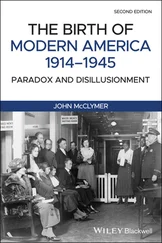WikiLeaks then began publishing unprecedented numbers of classified documents related to the wars in Iraq and Afghanistan—and later the Guantanamo files—leaked by Army private Bradley Edward Manning, a U.S. Army soldier assigned to an intelligence unit in Iraq. Manning had access to the U.S. Army’s sensitive intelligence network and managed to copy and pass on to Assange hundreds of thousands of pages of classified documents. Authorities caught Manning, prosecuted her in a court martial, and convicted her of the Espionage Act and abuse of government computer networks. She was sentenced to thirty-five years in prison for the leak. 10Assange referred to Manning’s prosecution as “an affront to basic concepts of Western justice.” 11World leaders and the public had mixed reactions to Assange’s actions. The U.S. government response, however, was decidedly anti-WikiLeaks. The Defense Department wrote: We deplore WikiLeaks for inducing individuals to break the law, leak classified documents and then cavalierly share that secret information with the world, including our enemies. We know terrorist organizations have been mining the leaked Afghan documents for information to use against us, and this Iraq leak is more than four times as large. By disclosing such sensitive information, WikiLeaks continues to put at risk the lives of our troops, their coalition partners and those Iraqis and Afghans working with us. The only responsible course of action for WikiLeaks at this point is to return the stolen material and expunge it from their Web sites as soon as possible. 12
Assange again drew fire from U.S. officials after the release of approximately 250,000 diplomatic cables in November 2010. The White House called the release a “reckless and dangerous action.” 13Then-Secretary of State Hillary Clinton referred to the leak as “an attack against the international community.” 14The international community and the American public were less sure of what to make of the one-time hacker who facilitated the mass leaks. The New York Ti mes wrote, “The Russians seemed to take a special delight in tweaking Washington over its reaction to the leaks, suggesting that the Americans were being hypocritical.” Russian Prime Minister Vladimir Putin criticized the U.S. response. “You know, out in the countryside, we have a saying, ‘Someone else’s cow may moo, but yours should keep quiet,’” Putin said, using a Russian proverb The New York Times described as roughly equivalent to “the pot calling the kettle black.” 15Meanwhile, Assange won TIME’s reader’s choice for Person of the Year in 2010, but lost Person of the Year to Mark Zuckerberg. 16
WikiLeaks worked with a number of media organizations during these leaks. As executive editor of The New York Times , Bill Keller wrote he “would hesitate to describe what WikiLeaks does as journalism” in an article in January 2011 detailing his dealings with Assange. Keller wrote, “We regarded Assange throughout as a source, not as a partner or collaborator, but he was a man who clearly had his own agenda.” 17This was not the first time—and wouldn’t be the last time—the site’s founder would be accused of having an agenda. WikiLeaks sprang from Assange’s belief in scientific journalism, an idea he elaborated on in an interview with Raffi Khatchadourian, who was profiling Assange for The New Yorker : I want to set up a new standard: ‘scientific journalism.’ If you publish a paper on DNA, you are required, by all the good biological journals, to submit the data that has informed your research—the idea being that people will replicate it, check it, verify it. So this is something that needs to be done for journalism as well. There is an immediate power imbalance, in that readers are unable to verify what they are being told, and that leads to abuse. 18
Assange, however, over time he has strayed far away from the traditional journalistic principle of striving for objectivity, and instead has focused on the idea of justice. Khatchadourian writes, “Assange, despite his claims to scientific journalism, emphasized to me that his mission is to expose injustice, not to provide an even-handed record of events.” 19Assange would later write in his 2014 book When Google Met WikiLeaks , “I looked at something that I had seen going on with the world, which is that I thought there were too many unjust acts. And I wanted there to be more just acts, and fewer unjust acts.” 20
It is this very idea that has gotten WikiLeaks into hot water. The site and Assange have been criticized as openly having an agenda while claiming to be a journalistic enterprise. In his column for Slate, author Christopher Hitchens had critical words for the WikiLeaks founder: The man is plainly a micro-megalomaniac with few if any scruples and an undisguised agenda. As I wrote before, when he says that his aim is “to end two wars,” one knows at once what he means by the “ending.” In his fantasies he is probably some kind of guerrilla warrior, but in the real world he is a middle man and peddler who resents the civilization that nurtured him. 21
When WikiLeaks held off publication of the DNC emails until just before the Democratic National Convention, WikiLeaks came under renewed criticism for having an agenda, for not being objective, and for straying from its original purpose: “It’s become something else,” John Wonderlich, executive director of the non-profit Sunlight Foundation, told TIME. “It’s not striving for objectivity. It’s more careless. When they publish information it appears to be in service of some specific goal, of retribution, at the expense of the individual.” 22
Even those critical of Assange and WikiLeaks, however, have acknowledged the value of some of the site’s revelations. Still, critics worry about the ideological motives behind the operation. German Journalist Jochen Bittner wrote in a February 2016 opinion piece in The New York Times that the “idea behind WikiLeaks is simple, and ingenious.” He continued: Whistleblowers submitted material that proved corruption of the former Kenyan president, tax-avoidance strategies employed by big European banks, and indiscriminate killings of civilians by an American attack helicopter in Iraq. News outlets, including The Guardian , Der Spiegel and The New York Times , helped Mr. Assange spread the scoops. Yet, even back then, observers and media partners felt that Mr. Assange had more in mind than transparency, that there was an ideology behind his idea. Over time, that ideology has become increasingly apparent, through his regular public statements and his stint as a host for a Russian state-controlled TV network. 23
In August 2010, just months after the first Manning documents were published, two women accused Assange of rape and sexual assault in Sweden. Assange denies the allegations and he has not been charged. Assange was arrested in London in December and a British court ruled he should be extradited to Sweden, a decision he appealed to the U.K. Supreme Court, which upheld the extradition decision in May 2012. To prevent extradition to Sweden after the sexual assault accusations, Assange went to Ecuador’s embassy in London and appealed for political asylum, a request Ecuador granted in August of 2012. However, since leaving the building would entail his leaving Ecuador’s diplomatic immunity he is effectively residing in the Ecuadorian Embassy in London on house arrest. 24In August 2016, Sweden and Ecuador reached an agreement to interview Assange at the embassy, although the statute of limitations expired on all crimes but the rape allegation. 25
Ricardo Patiño, Ecuador’s foreign minister, cited fear of political prosecution as a reason for granting his asylum request. “There are serious indications of retaliation from the country or countries that produced the information published by Mr. Assange; retaliation that could endanger his safety, integrity and even his life,” Patiño said at a news conference. 26Patiño further suggested Assange would not receive a fair trial if extradited to the U.S., adding that it was “not at all improbable he could be subjected to cruel and degrading treatment and sentenced to life imprisonment or even capital punishment.” 27
Читать дальше











